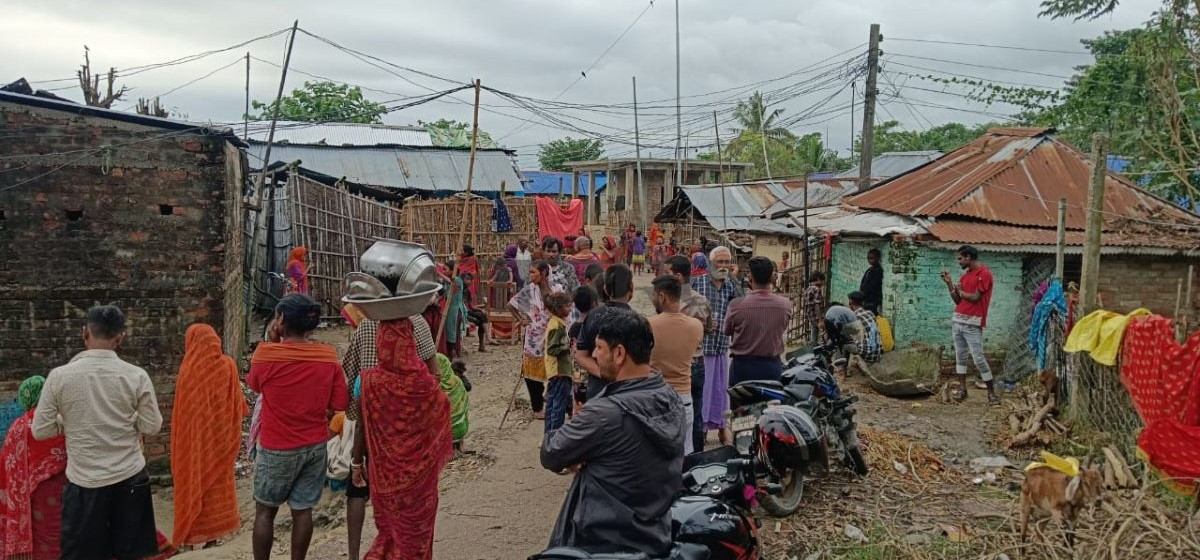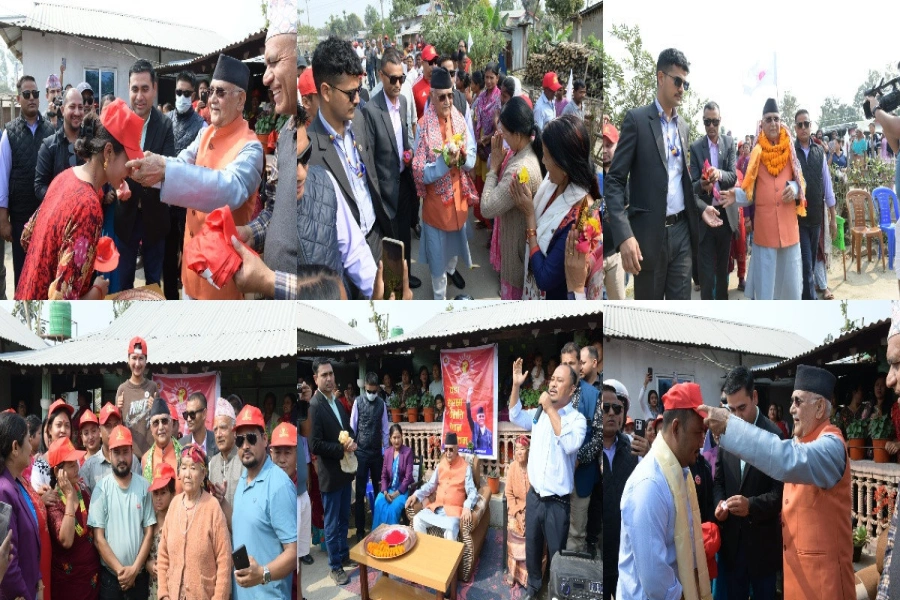Nara Bahadur Budha of Salma VDC-5 was given aquatab (water treatment pill) by health officials so that he could mix it with drinking water to protect himself from contracting diarrhea. He never used the tablet, as he reasoned that since such tablets would not always be available, he should continue to use unpurified water. He had to be eventually rushed to a health camp in Managhat for treatment of diarrhea.
Another individual, Bire Tamata, of Suwanauli VDC-8 was given metronidazole tablet and was advised by health workers to take it with hot water. But for Tamata, hot water smells, so he did not consume the tablet. He also had to be taken to a health post for treatment of diarrhea.
The three instances give an indication to the level of ignorance and superstitious practices that contributed to the spread of diarrhea that has gripped Jajarkot for the past three months.
The diarrhea that was first spotted in Nayakbada VDC some three months ago has claimed about 200 lives in the region so far. Thousands are still suffering. Though the government has mobilized as much human resource and medical supplies as it can to contain the spread, health workers complain that absence of awareness is not helping the containment effort.
Health workers say the reason the number of deaths has gone down now is because of availability of medicine. “New cases of diarrhea are as high as ever. The only difference is that number of deaths has gone down because of abundant medicine,” said Bhupendra Prasad Sharma, assistant health worker at a sub-health post in Suwanauli.
Though the government has been providing treatment to patients from two dozen locations in the district, not all locals know that they have to visit the health camps for treatment it they have diarrhea.
Many still believe that consuming alcohol or getting the help of faith healers can cure them.
A non-governmental organization, Nepal Water for Health (NEWAH), has been distributing Piyush (water purifying solution) and Lifebuoy soaps in the villages. But locals hardly use them in the lack of awareness that hygiene is important.
“We were given soap to wash our hands. But it was used up in a day because we took a bath using the soap,” said Tamata of Suwanauli. “Water loses its taste if we mix Piyush in it,” he added.
NEWAH has also set up temporary toilets. But the villagers´ habit of defecating in the open has not changed.
Poor literacy rate in the villages is the key reason behind the lack of awareness and the unwillingness to learn. According to the 2001 census, only 43.34 percent of people in Jajarkot are literate. But the District Education Office (DEO) says the figure is inflated.
“The census puts people who can barely recognize alphabets in the literate category,” said Lalit Bikram Shah, officer at the DEO. “The actual literate are far less, and the aware even lesser,” he added.
Coliform behind diarrhea epidemic in Nainhi village







-1200x560-1771928761.webp)




























